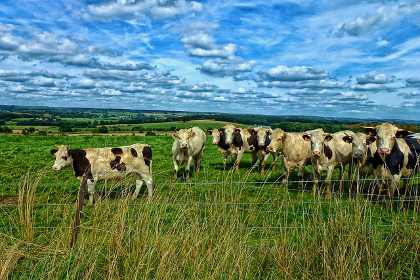
Vermont Dirty Dairies: All In? Or Deep Dairy Denial?
I am puzzled by the actions of the current Vermont secretary of agriculture, Chuck Ross. In meetings last month, Ross emphasized repeatedly, when asked about controlling water pollution, that we need to be “All in.” I presume this referred to the idea of spreading the blame for the state’s water pollution to all the point-source polluters, as well as the responsibility for its remediation.
November 15, 2016 | Source: VT Digger | by
I am puzzled by the actions of the current Vermont secretary of agriculture, Chuck Ross. In meetings last month, Ross emphasized repeatedly, when asked about controlling water pollution, that we need to be “All in.” I presume this referred to the idea of spreading the blame for the state’s water pollution to all the point-source polluters, as well as the responsibility for its remediation.
While the secretary wants to shift the blame to municipalities and development projects, contract researchers have determined that agriculture, especially confined dairy, is responsible for a majority of the water pollution in Vermont’s public waters. So, while we definitely need to be “all in” with respect to water pollution, agriculture needs to be really “all in,” because they are the major polluter.
My puzzlement intensified when I read that Ross met with St. Albans Co-op and other corporate dairy insiders last week to entertain proposals to weaken the required agricultural practices on dairies that regulate their water pollution. What happened to “All in”?
When I read Secretary Ross’ recent commentary in VTDigger, I felt like I was in some fantasy parallel universe, or he was. Instead of outlining a vision for the future of Vermont agriculture, here was the secretary, in his final months of this term, exhorting all of us to believe that Vermont’s dairy farms were growing more efficient and more sustainable.
For Ross to put a happy face on conventional dairy takes real creativity when the milk has so little value that farmers are dumping it in their lagoons and spreading it on their farmland. Dairy farmers are being attacked by Migrant Justice for flagrant labor abuses. Pesticide and fertilizer use has soared and the conventional dairy farmers are responsible for 79 percent of the water pollution in northern Lake Champlain and half of the water pollution in the rest of the state’s rivers, lakes and ponds. It’s time for change, not propping up the same system that got us in trouble on so many fronts.
